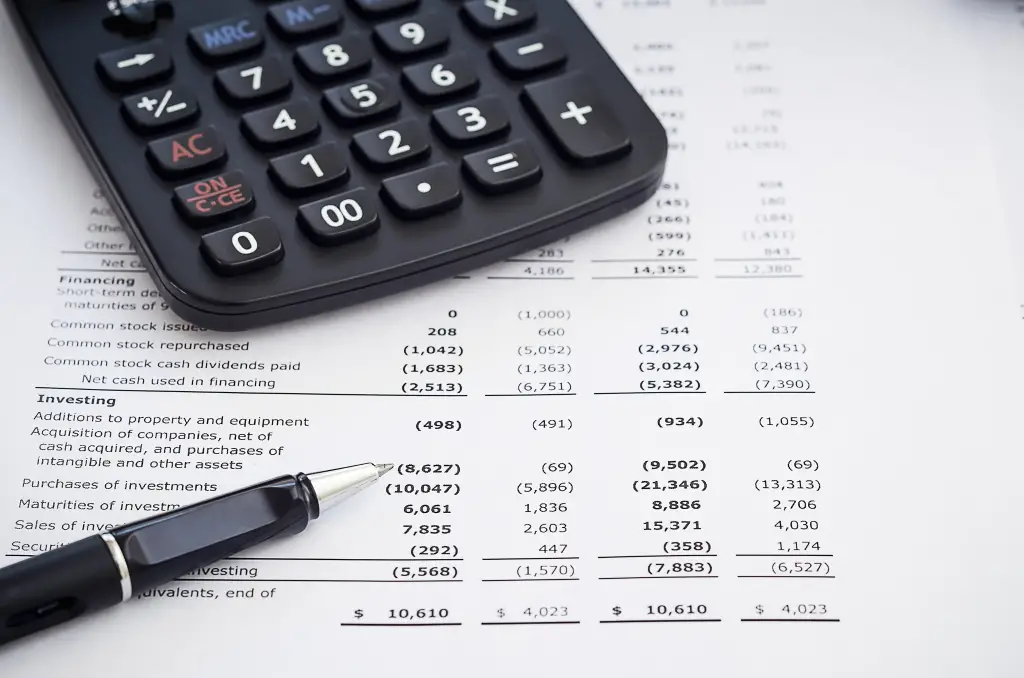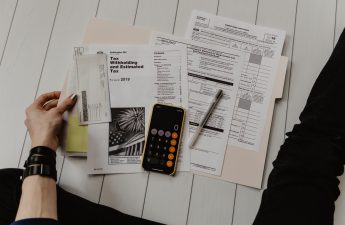Keeping track of rental property income and expenses can be challenging, especially if business transactions are mixed with personal ones. Property management software with rental property accounting features lets you streamline this process. As a result, rental property tax preparation is easy. Plus, you have good information to make decisions about the financial performance of your investments. In this article, we take a look at some of the reasons you should use a property management tool to streamline accounting for rental property.
![]() Related Read: Reporting and Accounting Tools: Best Accounting Software for Landlords
Related Read: Reporting and Accounting Tools: Best Accounting Software for Landlords
Benefits of Using a Property Management Tool for Rental Property Accounting
There are many benefits of rental property accounting using property management software. Let’s take a look at some of them:
1. More Organized Records
A property management tool lets you keep everything in one place. Rents are recorded automatically when you have tenants pay electronically. This means landlords don’t have to manually enter or categorize these transactions. Moreover, all rent payments are broken down by unit.
2. Simplified Expense Tracking
Expense categories that are relevant to rental property investing are already set up in a property management tool. Therefore, it’s easy to organize your income and expense data in a way that makes sense for tax preparation.
Most property management software with accounting tools gives you the standard expense categories that the IRS allows landlords to deduct from their rental income. This makes it easy to organize your transactions and you can select one of the standard categories for each transaction. You can also easily customize your own expense categories.
3. Better Reporting
An important part of accounting for rental property is reporting. These reports should give you quick access to an overview of your financials. In rental property accounting, reports are a quick reference point to determine how well your rental business is running.
With a property management tool, you can easily set up reports that are relevant to real estate investing. These reports keep landlords up to date with the financial health of their rental investments. Moreover, they are also useful for their bookkeeping, accounting tools, and tax preparation needs.
Pre-structured reports that are tailored to rental property investing offer the following benefits:
- Make tax preparation easy by having everything in one place
- Keep records that prove income and expenses, in case you get audited
- Make sure you include all expenses you can deduct from your income, so you don’t pay extra tax
- Evaluate the financial performance of each property, and even each unit
- Identify areas where your spending is too high and/or rent is too low. This way, you can find ways to improve the profitability
Apart from this, with many services you can also auto-generate forms such as the Schedule-E and issue 1099 forms to vendors.
![]() Related Read: The Best Rental Property Management Software: Product Overviews
Related Read: The Best Rental Property Management Software: Product Overviews
4. Tracking and Storing Receipts
You can also attach receipts as photographs or scanned images. You can even attribute them to the property or even a particular repair or job. Some of the best property management tools let you connect invoices and receipts directly to maintenance management features. As a result, you have a trail of what the repair was, what unit it was on, and what background communication went along with it. With some tools, you can also scan receipts and automatically create entries in the accounting ledger.
For example, the smart scan receipts feature in Landlord Studio allows you to take a picture of your receipts using your phone. The tool then reads the receipt details and enters them automatically into the system. Once you click on the save button, it logs the expense and stores the digitized receipt in its secure cloud server for future reference.
5. Rental Property Accounting for an Individual Unit’s Performance
Because your rental units and their respective tenants are tied-together in the system, property management software makes it easy to store both property and tenant data in one place. This gives you at-a-glance information on the performance of the unit and the occupant. If your repair costs are high and your rents are low you can take action to fix the situation and improve your profitability.
You can sort and view all income and expenses on an individual property level. This helps identify which units are costing you the most and which ones are the most profitable. As a result, you can adjust your operations accordingly. Often you can filter for active, complete, in transit, or incomplete transactions as well.
6. Sync with Bank Accounts
Some property management tools allow you to connect the platform to your bank, often with different accounts for different properties. Connecting your bank account to a property management tool will save hours of admin time. That’s because it removes manual data entry and reduces many of the common errors in bookkeeping.
The most sophisticated tools will synchronize transactions from your bank account so you can reconcile and assign income and expenses to your properties. By linking your property information and accounts, you gain access to a current view of how your portfolio is performing in real-time. You can quickly get all the insights you need at your fingertips to make better decisions.
![]() Related Read: The Best Online Rent Payment Service for Small Landlords
Related Read: The Best Online Rent Payment Service for Small Landlords
7. No Need for Separate Bookkeeping Tools
Many property management tools already have categories set up for the types of income and expenses that relate to rental real estate operations. Therefore, you don’t have to manipulate a universal bookkeeping program to fit the structure of your rental business.
If needed, you can also download your financial data to accounting software such as Quickbooks, which many accountants commonly use for tax preparation. In most cases, you can at least download transactions as a .csv file, which can be converted straight to an Excel spreadsheet.
![]() Also Read: Rental Property Spreadsheets: Should Landlords Use Excel or Property Management Software?
Also Read: Rental Property Spreadsheets: Should Landlords Use Excel or Property Management Software?

Reasons to Get Away from Paper Records and Spreadsheets
Here are some of the reasons you should switch from manual spreadsheets and paper records to online rental property accounting using property management tools.
- Around 88% of spreadsheets have errors, ranging from simple typos to more complex mathematical errors or errors in formulas.
- Manually creating and maintaining a detailed spreadsheet is laborious and inefficient. It eats up a lot of time that you could otherwise spend on more productive tasks that directly affect your return on investment (ROI).
- Working with spreadsheets or paper records becomes cumbersome when you have a large portfolio. You need more time and effort to manage and track your investment finances.
- Spreadsheets offer limited functionality. You can only use them to track income and expenses. Unlike property management tools, they don’t offer additional features that boost efficiency in multiple areas of your real estate business, such as rent payment, maintenance tracking, tenant screening etc.
![]() Related Read: The Best Free Property Management Software for Small Landlords
Related Read: The Best Free Property Management Software for Small Landlords
The Best Rental Property Accounting Tools For Landlords
These are the winners from our best reporting and accounting tools for landlords post:
| SERVICE | DESCRIPTION | RATING | MORE |
|---|---|---|---|
|
BEST OVERALL

|
Stessa
|

49.5
|
Read ReviewSign Up Here |
|
RUNNER UP

|
RentRedi
|

47.5
|
Read ReviewSign Up Here |
|
TAX PREP

|
Rentec Direct
|

47.0
|
Read ReviewSign Up Here |
Rental Property Accounting: Landlord Gurus Takeaway
A property management tool with rental property accounting features ensures that your financial data is more complete and accessible. This empowers you to plan for the future, grow your rental business, and achieve your financial objectives. It not only makes tax preparation a breeze but also saves you from paying potential penalties. You can also avoid paying excess taxes by making sure that you track and claim all deductible expenses.
If you’re looking for a property management tool that offers robust accounting for rental property, check out our post on the Best Accounting Software for Landlords.
Disclosure: Some of the links in this post are affiliate links and Landlord Gurus may earn a commission. Our mission remains to provide valuable resources and information that helps landlords manage their rental properties efficiently and profitably. We link to these companies and their products because of their quality, not because of the commission.




